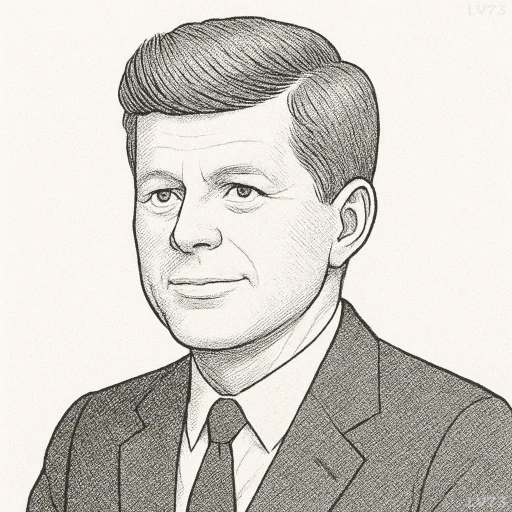“It is an unfortunate fact that we can secure peace only by preparing for war.”

- May 29, 1917 – November 22, 1963
- American
- Politician
table of contents
Quote
“It is an unfortunate fact that we can secure peace only by preparing for war.”
Explanation
In this statement, John F. Kennedy grapples with the harsh realities of Cold War politics and the paradoxical relationship between military preparedness and peace. Kennedy acknowledges that, in the context of the nuclear arms race and global tensions of the early 1960s, achieving peace was often seen as requiring the credible threat of military force. In a world where the balance of power could determine the fate of nations, and where the Soviet Union and the United States were locked in a battle for ideological supremacy, Kennedy suggests that the military strength of a nation was crucial not only for self-defense but also as a deterrent against aggression. The underlying idea here is that peace in such a volatile era could only be preserved through the ability to project power, particularly in the form of nuclear deterrence, as nations could not afford to appear weak or unprepared for conflict.
This concept is rooted in the Cold War era, when the arms race between the U.S. and the Soviet Union led to an ever-increasing stockpile of nuclear weapons, even as both sides claimed to desire peace. The statement also reflects the realpolitik of the time: despite the rhetoric of diplomacy and peace, the threat of mutually assured destruction (MAD) was often seen as the primary mechanism for preventing large-scale war. For Kennedy and many of his contemporaries, this was a painful reality—the recognition that the desire for peace had to be backed by the preparation for war, especially when it came to maintaining national security and deterrence against hostile powers.
In modern terms, Kennedy’s statement remains a poignant reflection on the complexities of global peacekeeping in a world where the balance of power can hinge on military capability. Today, the tension between military preparedness and peace is still evident in various international conflicts, such as the North Korean crisis, the ongoing threat of terrorism, and the proliferation of nuclear weapons. The notion of defensive deterrence—the idea that military strength can prevent conflict—is still a central tenet of international relations, but it also raises difficult questions about the ethics of maintaining peace through the threat of violence. Kennedy’s words remind us that, while peace remains the ultimate goal, the path to achieving it can be fraught with difficult trade-offs, as nations navigate the precarious balance between security, diplomacy, and the constant specter of war.
Would you like to share your impressions or related stories about this quote in the comments section?




